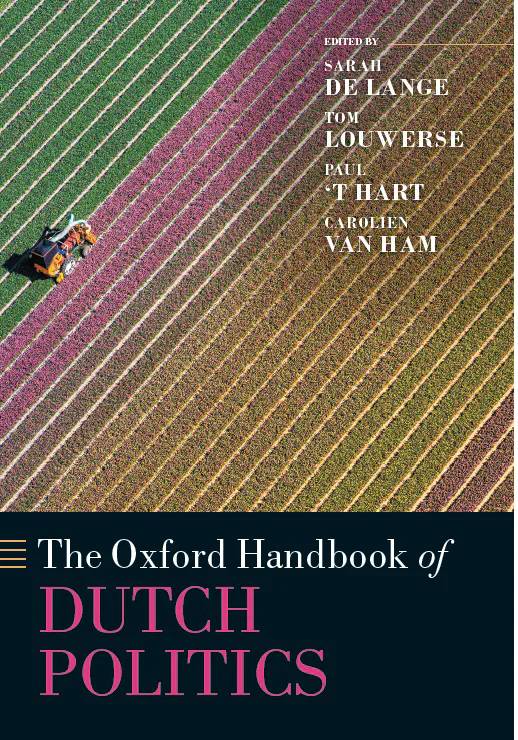The Oxford Handbook of Dutch Politics
 Cover
CoverAbstract
The Oxford Handbook of Dutch Politics provides a comprehensive longitudinal overview of the state of the art of academic research on the Dutch political system: its origins and historical development, its key institutions, main fault lines, pivotal processes, and key public policy dynamics. In each of the chapters, researchers take stock of what —if anything— has changed over time, how scholars have conceptualized and studied these dynamics, and what key factors can account for the developmental patterns found to be at play. Notwithstanding its considerable degree of constitutional and institutional stability, Dutch politics has seen considerable step changes and occasional upheavals across the last half-century. Influenced by long-term demographic, socio-economic, and cultural shifts, the old social cleavages have waned. New social identities and dividing lines —such as ethnicity, education, place, and gender— have influenced Dutch citizens’ political attitudes and behaviours, including their voting patterns. The media landscape and the information environment have been altered by new technologies that politicians and citizens alike have to navigate. This has produced changes in such pivotal components as the party system, coalition formation and management processes, executive–legislative relations, and many others. Moreover, public policy paradigms and the political coalitions that sustained them have ascended and lost traction in most of the 11 policy domains discussed in the Handbook. In all, this volume provides unique and indispensable insights into stability and change in a political system that once gained notoriety as an archetype of a consensual (or consociational) democracy.
Use promotion code AUFLY30 to save 30% on purchasing via Oxford University Press